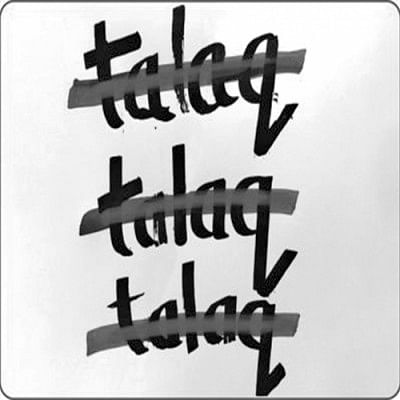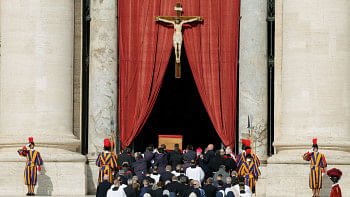Clarifying our understanding of Hilla Marriage

In the Muslim community, the concept of Hilla marriage is certainly a controversial one. According to the existing law, a Muslim man can divorce his wife and can revoke such divorce twice. But as he divorces his wife for the third time, the divorce becomes irrevocable, and the woman becomes haram (unlawful) for the man. The man cannot marry the same woman unless she gets married to another man; the marriage is consummated and afterwards gets terminated by the second husband. Upon observing the period of iddat, there is no bar for the first husband to re-marry her. However, the literal understanding of the concept of Hilla marriage has caused great miseries to the Muslim women who have to bear its brunt.
In the pre-Islamic era, a Muslim man could divorce his wife as many times as he wanted and could revoke the same in exercise of an undisputed authority. It had become a means of ill-treatment and torture of the Muslim women and the sanctity of marriage as an institution is vitiated through this harmful practice. With an intention to curb this ill practice, it was ordained in Islam that a Muslim man could only revoke divorce twice and the third time the divorce would become irrevocable; he could not get his wife back without an intermediary marriage. The Quranic reference of this concept can be cited as follows:
"And if he has divorced her (for the third time), then she is not lawful to him afterward until (after) she marries a husband other than him. And if the latter husband divorces her (or dies), there is no blame upon the woman and her former husband for returning to each other if they think that they can keep (within) the limits of Allah. These are the limits of Allah, which He makes clear to a people who know." (2:230)
From Bukhaari (2639) and Muslim (1433) it can be found that the wife does not become lawful for her first husband until the second marriage is consummated.
Unfortunately, the failure to understand the spirit of the letters of the Quran and Hadith has led to a practice in which a man marries and subsequently divorces a woman simply to render her lawful for the first husband. Such a marriage has no sanction in Islam and is completely void.
Our Prophet (PBUH) condemned such marriage saying,"Curse be upon the one who marries a divorced woman with the intention of making her lawful for her former husband and upon the one for whom she is made lawful." [Abu Dawood (2076); Ibn Majah (1935); At-Tirmidhee (1119)]
Furthermore, according to the Malikiee, Shafiee and Hanbalie schools of thoughts, such marriage is void as it is conditional and is to last only for a certain period of time.
The practice of Hilla marriage is prevalent in Bangladesh especially in rural areas. In August 2021, a couple of Chalimpur village, of Debiganjupazila under Panchagarh, had been isolated by the local influential people as the husband denied his wife's Hilla marriage after their divorce. As clearly conceivable, Hilla marriage in Bangladesh is incidental to the issue of triple Talaq (three pronouncements at a single sitting). This is another ill practice which goes against the very spirit of Islam.
The Muslim Family Law Ordinance, 1961 addresses issue of triple Talaq and Hilla marriage. According to section 7 of the 1961 Ordinance, a man can divorce his wife by pronouncement of Talaq in any form he wants, and he has to give a notice to the Chairman in this regard and also a copy to the wife. Failure to comply with this will result in simple imprisonment which may extend to one year or with fine which may extend to ten thousand taka or both. If the Talaq is not revoked earlier, it shall take effect after the expiration of 90 days from the day on which the notice was given. This section also stipulates that a wife divorced by her husband according to this section can re-marry him without an intervening marriage unless the termination is for the third time so effective. Thus, this section does not expressly ban triple Talaq but successfully curbs its effect by fixing a period of 90 days for the talaq to take effect.
The High Court Division in the Writ Petition No. 5897 of 2000 held that execution of a fatwa related to Hilla marriage is punishable offence under sections 494, 508, and 509 of the Penal Code, 1860 and under section 7 of the 1961 Ordinance.
In a patriarchal society, Hilla marriage is implemented as yet another weapon to exploit women. Such marriage not only undermines the wisdom of Islam but also goes against the constitutional spirit of Bangladesh. Such practice undermines women's agency and contradicts with their fundamental rightsas guaranteed under the Constitution.
Misinterpretation of Hadith and Quran has the effect of substantially restricting the rights of the Muslim women. Therefore, a sincere approach on part of the Muslim community towards understanding Quran and Hadith is necessary.
THE WRITER IS A STUDENT OF LAW, UNIVERSITY OF CHITTAGONG.

 For all latest news, follow The Daily Star's Google News channel.
For all latest news, follow The Daily Star's Google News channel. 



Comments